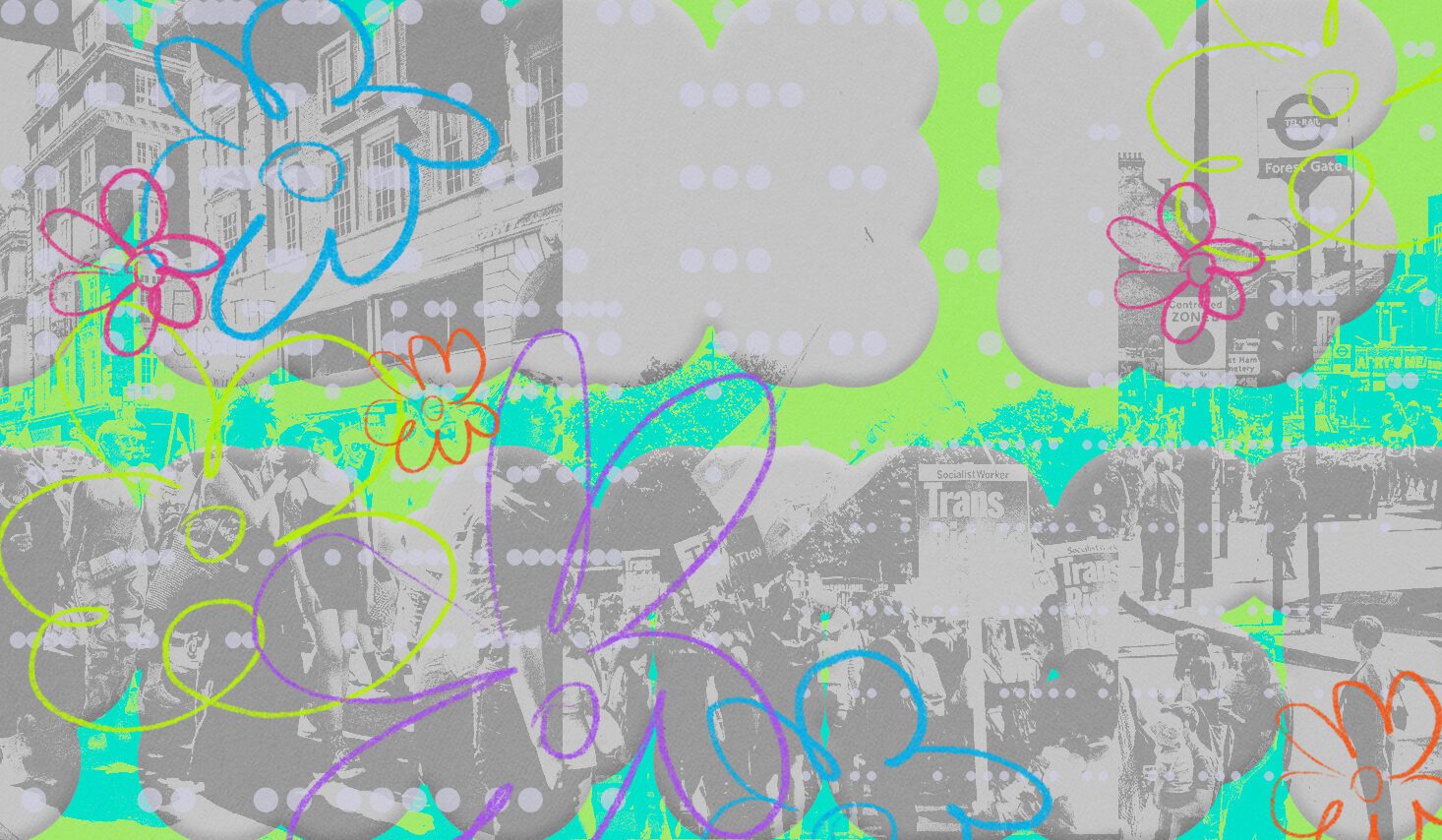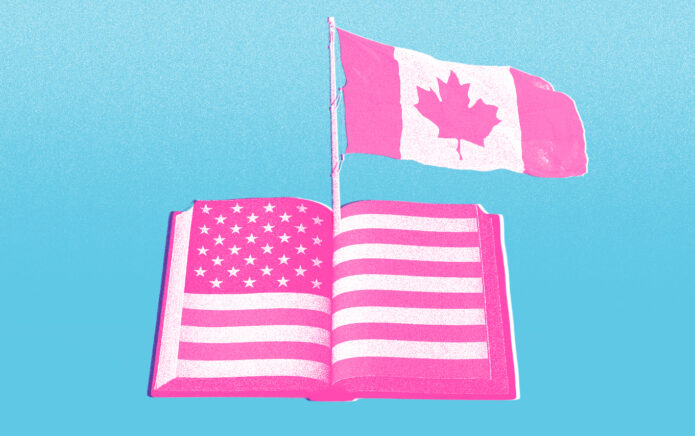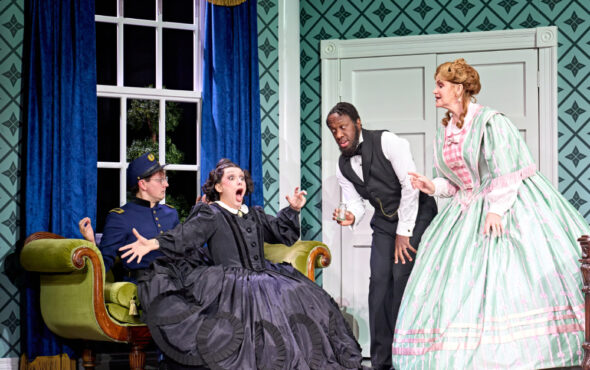
I love Pride. The rainbows, the glitter, the music, the dancing, all of it. I’ve seen myself grow from someone who only had the courage to watch Pride in London from afar 15 years ago on my own, to walking in the parade surrounded by other members of the LGBTQ+ community. But it’s easy to forget what Pride is really about amongst the rainbow haze. ‘The first Pride was a riot’ is a slogan which pops up every year referring to the now famous riot that broke out at a small New York bar called the Stonewall Inn, in June 1969. The riot has been labelled as the catalyst of the gay rights movement but the slogan doesn’t seem to resonate with the Prides of 2023. Pride marches have become Pride parades, with days centred around a day of partying and celebration leaving little room for protests. Pride was a protest first and foremost but, today, we’ve reached a space with celebration and advocating for political progress that can co-exist.
In recent years, I’ve noticed a shift in the way I look at Pride. In particular, I feel that Pride in London has a long way to go to be the best fit for the community. It’s hard to dance along when you consider that hate crimes have risen by 168% since 2018, with London reporting the highest in the UK. Then, like clockwork, the biggest sponsors of Pride parades turn their social media handles to rainbow-coloured icons on the 1st of June and then back to their regular logos at midnight on the 1st of July like a corporate Cinderella. It’s true, actions speak louder than words and performative activism doesn’t get us very far. For me, over the last few years, Pride in London hasn’t been the right fit. So, where does that leave us? As the headliner Pride events get rolled out, it’s worth looking around and finding the event that works best for you and your community. After all, no one event is going to get it perfect.
Rob Desroches is the co-founder of Forest Gayte Pride, a grassroots project based in the East London borough of Newham. Forest Gayte Pride started as a coffee shop meet-up in 2017, but on the day 200-300 people arrived and the group had to relocate to a bigger venue. Now it has grown and attracts nearly 3000 people each year. When Desroches started attending Prides in the 1980s and 1990s, it was still very much a protest about the LGBTQ+ community fighting for the rights they did not yet have. Spaces like Forest Gayte Pride have become an alternative haven for those that don’t feel at home at the banner events. But, it doesn’t end there: there are plenty of local and regional Prides that can offer an alternative experience.
As LGBTQ+ acceptance has increased, Desroches believes our community-focused perspective during Pride has slipped away. “As acceptance has grown, we’ve let our guard down,” he explains. “It’s really easy to just show up for the party and have fun. But the political element, the activism element has been lost.” Instead, Desroches argues, a big portion of Pride has “gone from being a protest march to a parade.” The evolution of Pride, for some, has become more of an event, than a protest. However, things are changing. Take Manchester Pride which runs a Pride conference education on LGBTQ+ topics, to their Equals Charter which fights discrimination in the workplace. As musicians and corporations have increasingly become the face of Pride, it’s important to remember the necessary activism and on-the-ground work that needs to be spotlighted.
Influencer, actor and presenter Scott McGlynn attends a lot of Pride events – both commercial and grassroots – and has established a soft spot for smaller, more inclusive Prides because of their personal touch (“You see everyone you know.”) McGlynn grew up in Barry, Wales and attends Prides all over his home country, including Pride Cymru and Cowbridge Pride which was started by H from Steps last year. What he likes about grassroots Prides is that he is able to learn more about the charities that work in the community he grew up in. “You shouldn’t have to go to London to experience Pride,” he explains. “You can experience Pride in the community you’re from.”
Like McGlynn, Desroches believes there is a stronger sense of community at grassroots Prides that bigger, commercially-backed Prides can’t always achieve. As events like Pride in London – which pulls in over 1.5 million visitors – it’s difficult to tick every single box for each attendee, particularly when sponsorship or big names are in play. McGlynn’s main issue with larger Prides is the lack of commitment some businesses involved have to the LGBTQ+ community.
Of course, it’s expensive to run a large-scale Pride and LGBTQ+ employees on corporate floats deserve to be recognised by their own companies too, but McGlynn argues that the organisers of Pride should be pickier about who their sponsors are. “Pride is a whole year thing, you can’t just pop in and then pop out,” he tells GAY TIMES. “There needs to be a better selection process to make sure that the businesses are making a bigger commitment to the community than one day a year.”
Andre Bogues, Communications Officer at UK Black Pride, believes that grassroots Prides are able to occupy a space in the community that larger events aren’t able to. “[We] have the community at the heart of them. Grassroot Prides are ‘for us, by us’, they rely on the support of volunteers and those who want to be a part of something bigger than themselves,” he tells GAY TIMES. “Grassroots Prides keep the politics and the rebellion against systems of oppression front and centre.”
From regional Pride events to the anticipated run-up to Brighton Pride, we’re now in a space where we have events that can be tailored to different communities and outcomes. As we’ve reached this growing ecosystem of Pride, I’ve found greater resilience and community during my time at events like UK Black Pride. Elsewhere, I couldn’t really see myself as a Black queer woman in the larger parade which doesn’t centre faces that look like mine. UK Black Pride was the first place I saw a Pride flag and a Jamaican flag flying roundly next to each other and the first Pride I felt seen.
UK Black Pride has grown into a massive event since it began as a day trip to the seaside in 2005, now with an attendance of over 25,000 people. Yet, UK Black Pride has still managed to keep its community spirit. Bogues believes this is down to the people that run it being part of the Black LGBTQ+ community. “Speaking from experience, it’s all about the vibe and the energy you feel. The freedom, the queerness, the Blackness,” he tells GAY TIMES. “As a volunteer-led organisation, we welcome people into the family and accept change. It also goes without saying that Lady Phyll is a force, and she really makes UKBP feel like a place to connect with chosen family.”
As the pool of Pride events widens, Desroches cautions how commercialisation can risk alienating everyday LGBTQ+ people and lose touch with their radical roots. The LGBTQ+ community is incredibly diverse, and the danger with too much of a corporate presence at Pride is that they often only push one aspect of the LGBTQ+ community; a glitzy pink profile with greater disposable income, rather than looking at the real struggles we are all facing. “My community feels disillusioned and disenfranchised from bigger Prides,” Desroches says.
As grassroots Prides tend to be smaller, they inevitably feel like more of a community and can accommodate the diversity that exists within that community, allowing them to focus on being as inclusive as possible. Whether you’re planning to rock up to Pride in London, Tameside Pride or UK Black Pride, these events all unify us in wanting to spotlight the LGBTQ+ community. But, as we reach an uptick in numbers, we must remember the minorities as well as the majority. There will always be a necessity for workshops, sober spaces, LGBTQ+ talks and education. Local Pride and grassroots Pride inevitably have that closer, more intimate connection with their community. The work that smaller collectives showcase is a reminder of LGBTQ+ resilience and has been for decades. For now, I’ve found home at grassroots events like Margate Black Pride but, truthfully, as long as there is a community, there will always be Pride.



